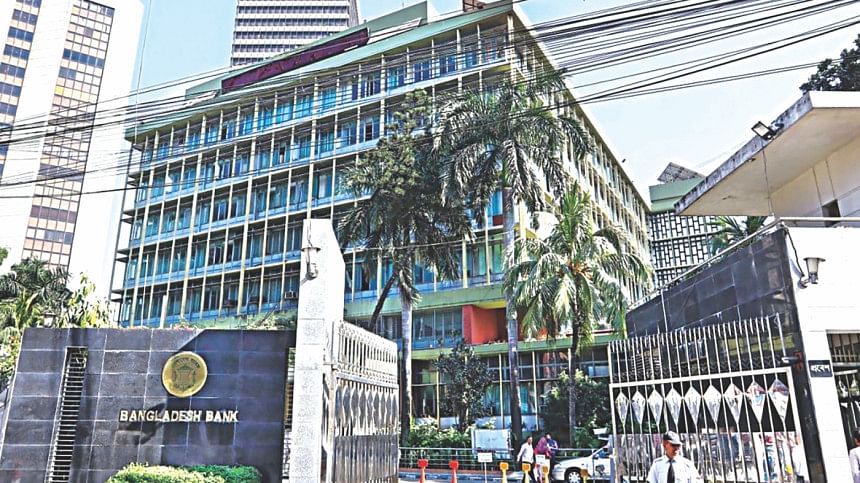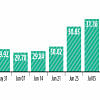Will BB steps build up reserves? Not so soon

Bangladesh Bank's steps to boost the country's foreign currency reserves will not yield any positive results overnight.
According to the government and IMF projections, the reserves will not increase until June next year despite the latest measures taken in line with the International Monetary Fund prescriptions.
Bangladesh's net international reserves (NIR) will be between $14 billion and $16 billion till March next year, according to the projections.
In June next year, the NIR might be close to $20 billion. This means the country's gross reserves could be around $25 billion at that time.
The NIR refers to gross reserves (based on the International Monetary Fund method) minus the central bank's forex liabilities and reserves earmarked for quasi-fiscal activities that involve state-owned banks and enterprises.
Speaking at a press briefing in the capital on Wednesday, IMF mission chief Chris Papageorgiou said Bangladesh will need some time to get the expected results from the BB steps.
He said the authorities have now taken "bold actions", a package of reforms.
"So, all of the measures, I think, will create more flexibility, more return. We see Bangladesh slowly coming out of these challenges," he added.
Talking to The Daily Star, Ahsan H Mansur, executive director of the think-tank Policy Research Institute (PRI), said it might take six to nine months to get the expected results from the BB's new measures given that the policy is implemented properly.
In a rare instance, the BB on Wednesday devalued the local currency by Tk 7 to Tk 117, the steepest fall in a day against the dollar. Moreover, the central bank loosened its age-old grip on the taka as it will now follow the crawling peg, a flexible exchange rate system.
The BB also made lending rates fully market-based and raised the overnight repurchase agreement rate, a form of short-term borrowing cost for banks, by 50 basis points to 8.5 percent.
Seeking anonymity, a central bank official said the new system will allow authorised dealers to trade with clients and between themselves at freely negotiated rates.
People will be able to buy and sell foreign currency at a price which reflects the current market supply and demand.
The new crawling peg regime will help rebuild reserves, added the official.
Ahsan H Mansur said the new system's success will depend on how efficiently and successfully the government and the central bank execute it.
"New systems are introduced in this country at different times, but those are not implemented properly," he said.
The latest system has brought about a unified exchange rate, removing the previous distortions. This will slightly incentivise export and remittance which will produce a positive result, he added.
However, it will take time to have a positive impact on the huge deficit in the financial account of the balance of payment because exporters and foreign investors will want to see how efficiently the new system is implemented, he noted.
If the new system stabilises the exchange rate, money will start flowing into the country in the next six to nine months, he further said.
"This means it will take some time for the new policy to produce results."
Finance division and central bank officials said the budget support will increase because of the bold actions.
Officials said these reforms, backed by the development partners, will help Bangladesh reach its full potential under the IMF programme.
On Wednesday, the IMF agreed to provide Bangladesh with $1.15 billion in the third tranche under the $4.7 billion loan programme.
Of the amount, about $932 million will be under the Extended Credit Facility (ECF)/Extended Fund Facility (EFF) and about $220 million under the Resilience and Sustainability Facility (RSF).
Earlier, Bangladesh got $462 billion in the second tranche under the ECF/EFF.
BB officials said the total loan amount will remain the same -- $4.7 billion.
The IMF, however, has agreed to pay an instalment in advance with the third tranche to support the package reform programme.

 For all latest news, follow The Daily Star's Google News channel.
For all latest news, follow The Daily Star's Google News channel. 





Comments